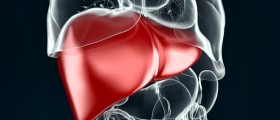
Anorexia nervosa, also known as simply anorexia, is one of the most common eating disorders. However, anorexia nervosa is not only an eating disorder but also a severe psychological disorder in which the patient’s concern about weight gain pushes beyond the normal limits. Persons with anorexia nervosa usually have no control over their dietary habits. Their problem may begin as a simple dieting to lose weight, but very soon, the weight loss becomes a sign of mastery and control and patients are driven to become thinner and thinner. This unhealthy eating pattern is usually an obsession and somewhat similar to any other type of addiction. Very often, the patients are losing control over their body, their actions, as they are becoming closer and closer to starvation.
Causes of anorexia nervosa
There is no single cause behind anorexia nervosa. This condition most probably arises from a number of biological, psychological and environmental factors, working together. There is some evidence that people with a biological relative with an eating disorder are at higher risk from developing anorexia nervosa. Others may be more inclined towards perfectionism, and other traits associated with anorexia.
Psychological causes and Environmental factors
Psychological causes are probably most significant and they include low self-esteem, obsessive-compulsive personality traits, extreme drive for perfectionism, etc.
Environmental factors are also important and they mainly relate to influences from the mother culture. People may feel a desire to be thin if that is a social imperative and if they are constantly bombed with images of thin models and public figures.
Psychological signs of anorexia
Manifestations of anorexia nervosa can be both physical and psychological. This condition often alters patient’s behavior and has severe effects on all aspects of life. These people are usually depressed and may tend to withdraw from the social life. They are usually very irritable, they get easily upset, and they mostly have troubles to communicate normally with the others. People suffering from anorexia nervosa usually have disturbed sleeping patterns, they are extremely fatigued, they lack attention and concentration and they are severely obsessed with food and thoughts of food. These patients often exercise compulsively to speed the weight-loss process.
Physical symptoms of anorexia
Physical symptoms are mainly associated with complications that result from starvation. These individuals have abnormally low heart rate, low blood pressure and disturbances in heart pace. In most cases, patients have problems with constipation and abdominal pain. Their endocrine system is usually disturbed, and the effects are visible in the absence of menstrual periods, diabetes mellitus, and other health problems.

















Your thoughts on this
Loading...